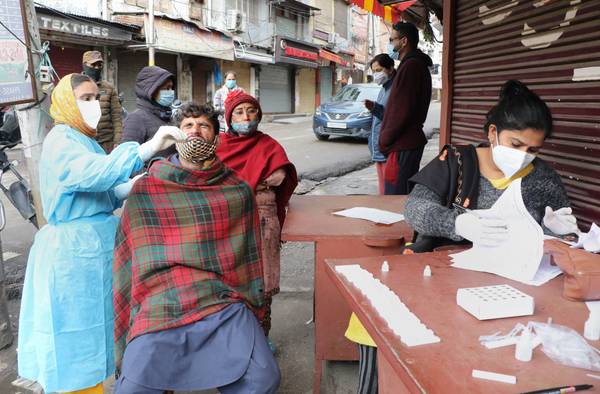According to an ICMR study, persons infected with Omicron have a substantial immune response that can neutralise not just the Omicron but also other versions of concern, including the most common Delta variant.
Also Read | India records 2,85,914 new COVID-19 cases, 665 deaths in last 24 hours
It suggests that the immune response induced by the Omicron could effectively neutralise the Delta variant, making re-infection with the Delta variant less likely, thereby displacing the Delta as the dominant strain, according to the study, emphasising the need for an Omicron-specific vaccine strategy.
The trial included 39 patients, 25 of whom received both doses of the AstraZeneca COVID-19 vaccination, eight of whom received a double dose of the Pfizer jab, and six who were unvaccinated.
Also Read | Biden administration officially withdraws workplace vaccine rule
Furthermore, 28 of these 39 were primarily foreign returnees from the UAE, South/West/East Africa, the Middle East, the United States, and the United Kingdom, with 11 people serving as high-risk contacts. All of these people were infected with the Omicron variety.
The researchers looked at the IgG antibody and Neutralizing Antibody (NAb) responses in persons who had both breakthrough and normal COVID-19 infections. “Individuals infected with Omicron had a significant immunological response, according to our findings. The neutralising antibodies were capable of effectively neutralising the Omicron and other variants of concern (VOCs), including the most common Delta variant “According to the study.
Also Read | Elton John farewell concert postponed after he tests COVID-19 positive
The main limitations of this study are the smaller number of uninfected patients and the shorter window time post-infection. According to the researchers, this could be a major reason for the low immune response against Omicron in unvaccinated people.
The research was carried out by ICMR scientists such as Pragya D Yadav, Gajanan N Sapkal, Rima R Sahay, and Priya Abraham. It has not yet been peer-reviewed and was published on the bioRxiv preprint server on January 26.







